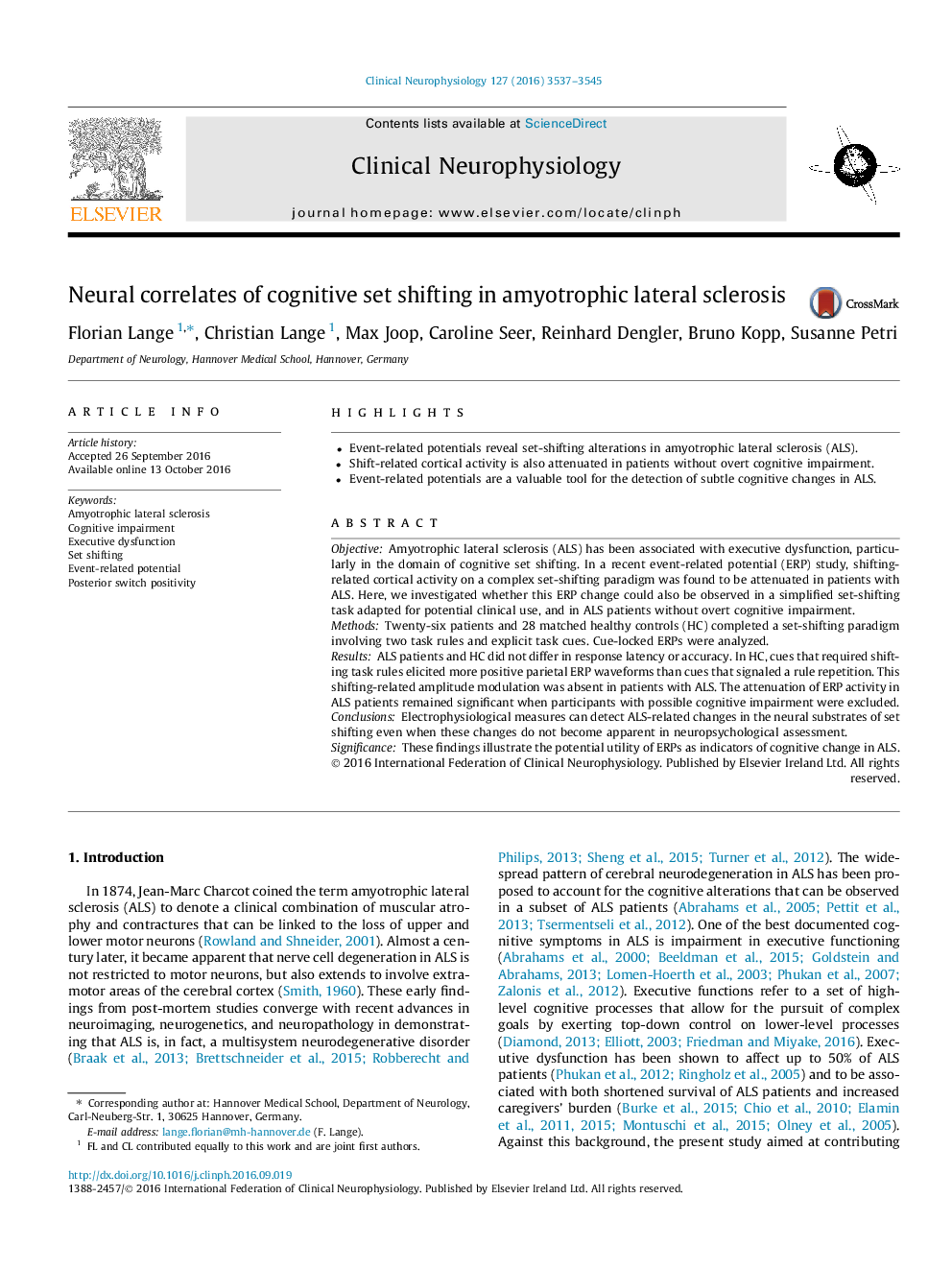| Article ID | Journal | Published Year | Pages | File Type |
|---|---|---|---|---|
| 5627481 | Clinical Neurophysiology | 2016 | 9 Pages |
â¢Event-related potentials reveal set-shifting alterations in amyotrophic lateral sclerosis (ALS).â¢Shift-related cortical activity is also attenuated in patients without overt cognitive impairment.â¢Event-related potentials are a valuable tool for the detection of subtle cognitive changes in ALS.
ObjectiveAmyotrophic lateral sclerosis (ALS) has been associated with executive dysfunction, particularly in the domain of cognitive set shifting. In a recent event-related potential (ERP) study, shifting-related cortical activity on a complex set-shifting paradigm was found to be attenuated in patients with ALS. Here, we investigated whether this ERP change could also be observed in a simplified set-shifting task adapted for potential clinical use, and in ALS patients without overt cognitive impairment.MethodsTwenty-six patients and 28 matched healthy controls (HC) completed a set-shifting paradigm involving two task rules and explicit task cues. Cue-locked ERPs were analyzed.ResultsALS patients and HC did not differ in response latency or accuracy. In HC, cues that required shifting task rules elicited more positive parietal ERP waveforms than cues that signaled a rule repetition. This shifting-related amplitude modulation was absent in patients with ALS. The attenuation of ERP activity in ALS patients remained significant when participants with possible cognitive impairment were excluded.ConclusionsElectrophysiological measures can detect ALS-related changes in the neural substrates of set shifting even when these changes do not become apparent in neuropsychological assessment.SignificanceThese findings illustrate the potential utility of ERPs as indicators of cognitive change in ALS.
